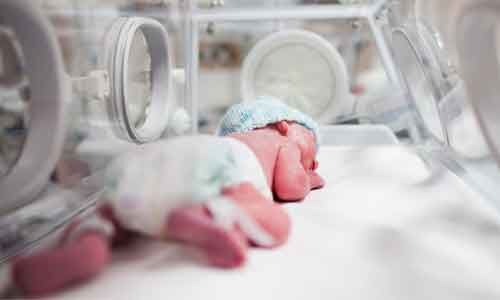- Home
- Medical news & Guidelines
- Anesthesiology
- Cardiology and CTVS
- Critical Care
- Dentistry
- Dermatology
- Diabetes and Endocrinology
- ENT
- Gastroenterology
- Medicine
- Nephrology
- Neurology
- Obstretics-Gynaecology
- Oncology
- Ophthalmology
- Orthopaedics
- Pediatrics-Neonatology
- Psychiatry
- Pulmonology
- Radiology
- Surgery
- Urology
- Laboratory Medicine
- Diet
- Nursing
- Paramedical
- Physiotherapy
- Health news
- Fact Check
- Bone Health Fact Check
- Brain Health Fact Check
- Cancer Related Fact Check
- Child Care Fact Check
- Dental and oral health fact check
- Diabetes and metabolic health fact check
- Diet and Nutrition Fact Check
- Eye and ENT Care Fact Check
- Fitness fact check
- Gut health fact check
- Heart health fact check
- Kidney health fact check
- Medical education fact check
- Men's health fact check
- Respiratory fact check
- Skin and hair care fact check
- Vaccine and Immunization fact check
- Women's health fact check
- AYUSH
- State News
- Andaman and Nicobar Islands
- Andhra Pradesh
- Arunachal Pradesh
- Assam
- Bihar
- Chandigarh
- Chattisgarh
- Dadra and Nagar Haveli
- Daman and Diu
- Delhi
- Goa
- Gujarat
- Haryana
- Himachal Pradesh
- Jammu & Kashmir
- Jharkhand
- Karnataka
- Kerala
- Ladakh
- Lakshadweep
- Madhya Pradesh
- Maharashtra
- Manipur
- Meghalaya
- Mizoram
- Nagaland
- Odisha
- Puducherry
- Punjab
- Rajasthan
- Sikkim
- Tamil Nadu
- Telangana
- Tripura
- Uttar Pradesh
- Uttrakhand
- West Bengal
- Medical Education
- Industry
New respiratory support system helps reduce delivery room intubation in preemies: JAMA

Sweden: The use of a new respiratory support system versus standard T-piece system with face mask, reduced delivery room intubation in extremely preterm infants, a recent study has found. The new system with low imposed work of breathing and short binasal prongs was found to be safe and feasible. The study findings appear in JAMA Pediatrics.
The establishment of stable breathing after birth is important for preterm infants. Avoiding face masks and delivering pressure-stable continuous positive airway pressure could be of importance in the delivery room. Considering the importance, Snorri Donaldsson, Department of Neonatology, Karolinska University Hospital, Stockholm, Sweden, and colleagues aimed to determine if the use of a new respiratory support system with low imposed work of breathing and short binasal prongs decrease delivery room intubations or death compared with a standard T-piece system with a face mask.
For this purpose, the researchers conducted an unblinded randomized clinical trial conducted in 7 neonatal intensive care units in 5 European countries from March 2016 to May 2020. The researchers screened mothers threatening preterm delivery before week 28 of gestation. A total of 365 mothers were enrolled, and 250 infants were randomized before birth and 246 liveborn infants were treated. The follow-up period was 72 hours after the intervention. The intervention was providing continuous positive airway pressure for 10 to 30 minutes and positive pressure ventilation, if needed, with the randomized system.
Infants were randomized to receive either the new respiratory support system with short binasal prongs (n = 124 infants) or the standard T-piece system with face mask (n = 122 infants).
The primary outcome was delivery room intubation or death within 30 minutes of birth.
Of 246 liveborn infants treated, the mean gestational age was 25.9 weeks, and 51.6% were female.
The study yielded the following findings:
- 33.1% infants receiving the new respiratory support system were intubated or died in the delivery room compared with 45.1% infants receiving standard care.
- The adjusted odds ratio was statistically significant after adjusting for stratification variables (adjusted odds ratio, 0.53).
- No significant differences were seen in secondary outcomes or safety variables.
The researchers concluded, "in our study, using the new respiratory support system when stabilizing extremely preterm infants decreased intubation or death in the DR. Stabilization with a system that has low iWOB and short binasal prongs is safe and feasible."
Reference:
Donaldsson S, Drevhammar T, Li Y, et al. Comparison of Respiratory Support After Delivery in Infants Born Before 28 Weeks' Gestational Age: The CORSAD Randomized Clinical Trial. JAMA Pediatr. 2021;175(9):911–918. doi:10.1001/jamapediatrics.2021.1497
Dr Kamal Kant Kohli-MBBS, DTCD- a chest specialist with more than 30 years of practice and a flair for writing clinical articles, Dr Kamal Kant Kohli joined Medical Dialogues as a Chief Editor of Medical News. Besides writing articles, as an editor, he proofreads and verifies all the medical content published on Medical Dialogues including those coming from journals, studies,medical conferences,guidelines etc. Email: drkohli@medicaldialogues.in. Contact no. 011-43720751


